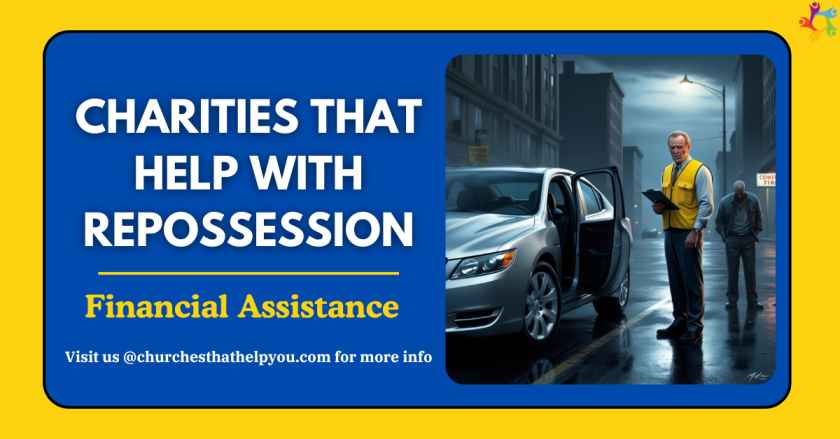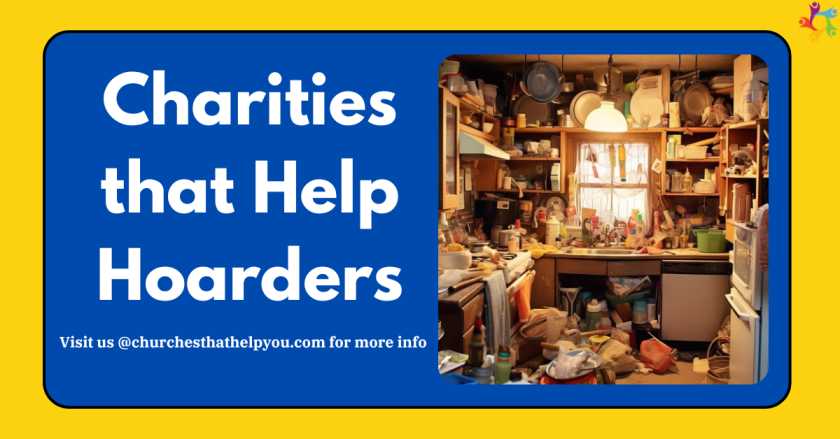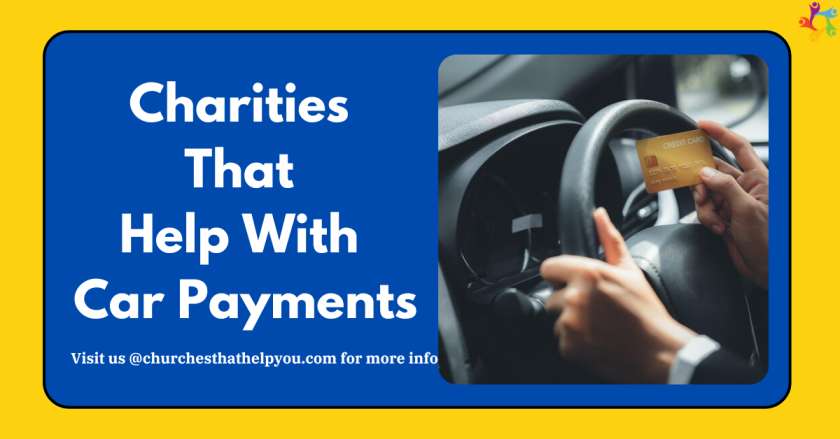Repossession can be a terrible experience, often leading to feelings of hopelessness and uncertainty. Fortunately, charities and organizations Assist individuals facing repossession to help guide them through this challenging time.
This article serves as a comprehensive guide to understanding duplicate ownership, the role of charities in providing support, and how to access these important resources.
What is Repossession?
Repossession refers to the process in which a lender takes back something of value, generally without making payments to the borrower. This is generally the case for vehicles, homes, and other financial items. Repossession can have a significant impact including loss of property Damage to credit scores and emotional distress for individuals and families.
Repossession can occur for many reasons including unemployment, unexpected medical expenses, or a sudden decrease in income. The consequences are often far-reaching. The consequences are often far-reaching, affecting not only the immediate financial situation but also the mental well-being of those involved. Understanding these impacts is essential for individuals seeking help and for the charities aiming to assist them.
Charities play a crucial role in helping individuals prevent repossession by providing financial assistance, legal advice, and resources for stabilization. Many organizations focus on helping families stay in their homes or keep their vehicles, ultimately promoting financial stability and community well-being.
- Also read: Charities That Help With Car Payments
Top Charities That Help with Repossession
Here is the list of top charities that help with repossession to people in need. Check the list of charities:
The Salvation Army’s Repossession Aid
The Salvation Army offers a wide range of services including emergency financial assistance to help individuals cover home and vehicle payments. Their programs often include budget assistance and support for those facing an imminent recall.
Catholic Charities’ Repossession Prevention Programs
Catholic Charities is another important player in providing support to those facing arrest. They provide comprehensive services including emergency financial assistance, housing assistance, and legal advice.
United Way
United Way collaborates with various local organizations to provide financial assistance and support services. They help connect individuals in crisis with resources for preventing eviction and repossession.
Local Community Action Agencies (CAAs)
Community Action Agencies offer a variety of services to help low-income people including emergency financial assistance for rent or vehicle payments to prevent repossession. They also offer budgeting and financial literacy programs.
The National Foundation for Credit Counseling (NFCC)
NFCC provides credit counseling and financial education services. To help various people Manage debt and prevent asset repossessions They can help with budget strategies and refer local resources.
Modest Needs
Modest Needs provides short-term financial assistance to individuals facing unexpected expenses that could lead to eviction or repossession. They focus on helping those who are employed but in a temporary financial bind.
NeighborWorks America
NeighborWorks America supports local organizations that provide housing counseling and financial assistance to prevent repossession and repossession. They focus on sustainable homeownership and community development.
Operation Hope
Operation Hope offers financial literacy training and counseling services to help individuals improve their financial situations and avoid repossession. They provide resources for homeownership and debt management.
These charities and organizations are valuable resources for individuals at risk of repossession, offering a range of services from financial assistance to counseling and education.
Government and Nonprofit Collaborations That Help With Repossession
Here’s a list of government and nonprofit collaborations that help individuals facing repossession, along with a brief overview of their services:
HUD’s Housing Counseling Program
The U.S. Department of Housing and Urban Development (HUD) partners with non-profit housing counseling agencies that assist individuals experiencing housing instability. These agencies provide advice on budgeting, repossession prevention, and avoiding asset repossession.
Emergency Solutions Grants (ESG) Program
The ESG Program is a federal initiative that provides funding to non-profit organizations and local governments to prevent homelessness. These funds can be used to assist individuals at risk of repossession by providing rental assistance and support services.
Home Affordable Modification Program (HAMP)
HAMP is a government program designed to help homeowners avoid repossession. It partners with several non-profit organizations to modify loans. This can help reduce monthly payments and prevent repossessions.
Legal Aid Programs
Many states have legal aid organizations that collaborate with local governments to provide free legal assistance to individuals facing repossession. These programs can help individuals understand their rights and options regarding repossession and eviction.
Community Development Block Grant (CDBG) Program
The CDBG program, administered by HUD, provides funding to local governments to support a variety of community development initiatives. Some of these funds can be allocated to non-profit organizations that provide housing assistance and support to prevent repossession.
Workforce Development Programs
Government agencies often partner with non-profit organizations to provide workforce development and job training programs by improving employment opportunities. These programs can help individuals achieve financial stability and avoid repossession.
The National Foreclosure Mitigation Counseling (NFMC) Program
The NFMC program, administered by HUD, provides grants to non-profit housing counseling agencies for homeowners facing foreclosure. These agencies offer free counseling services to help individuals avoid repossession.
These collaborations between government entities and nonprofit organizations offer a vital safety net for individuals at risk of repossession, providing a range of resources and support to help stabilize their situations.
Emergency Car Payment Assistance
Charities generally provide two types of financial assistance: short-term and long-term. Short-term assistance can help individuals cover payments immediately to prevent repossession. While long-term assistance can focus on education, financial security, and stability.
Short-term and long-term financial assistance
✔️Short-term assistance: This may include a one-time payment to cover overdue bills or repayment of debt.
✔️Long-term solution: A program that provides ongoing support including financial literacy courses and job training which aims to prevent future financial crises.
- Also read: Churches That Help With Car Payments
Steps to Apply for Repossession Assistance from Charities
Here is a guide to applying for repossession assistance from charities, with steps to help streamline the process:
Identify Local Charities Offering Assistance
- Start by researching local charities and nonprofit organizations that provide repossession assistance, such as Catholic Charities, Salvation Army, and United Way.
- You can find potential organizations online or by contacting a local community service office for referrals.
Gather Required Documentation
- Charities typically require documentation to assess your financial situation. Prepare necessary paperwork, including proof of income, bank statements, lease or mortgage documents, recent bills, and identification.
- Having these documents organized and ready can make the application process quicker and easier.
Explain Your Situation Clearly
- When applying, provide a detailed explanation of your circumstances. Charities want to understand why you are seeking assistance, such as a job loss, medical emergency, or unexpected expense.
- Being transparent and thorough can help establish the urgency of your need.
Complete the Application Process
- Many charities have specific application procedures including online forms, in-person visits, or telephone interviews. Follow each organization’s instructions carefully to ensure your application is complete.
- Missing information or incomplete forms can delay the approval process.
Ask About Additional Support Services
- Many charities offer more than just financial assistance. Ask about other services such as job training, financial counseling, and budgeting workshops that may help you avoid repossession in the future.
- Taking advantage of these resources shows commitment to financial stability, which may improve your chances of receiving assistance.
Follow Up on Your Application Status
If you haven’t received a response within the expected timeframe, reach out to the charity to check your application status. Politely following up shows initiative and can sometimes expedite the process.
Following these steps can help you navigate the process of applying for repossession assistance from charities, maximizing your chances of receiving the support you need.
Tips for a Successful Application
✅Be Honest: Clearly explain your situation and need for assistance.
✅Follow Instructions: Adhere to the application guidelines provided by the charity.
✅Ask for Help: If unsure about the process, reach out to the charity for clarification.
Conclusion
Rebuilding after repossession can be challenging, but with the support of charities, individuals can find a path toward stability and self-sufficiency. Charitable organizations offer not only financial assistance but also emotional support and community connections.
By accessing resources and support, individuals can work toward regaining control of their lives, ensuring that they are better prepared to handle future challenges. Seeking help is the first step in the journey toward recovery and financial independence.
FAQs
Can you negotiate a repossession?
Yes, you can negotiate with the lender to avoid repossession or to reduce the amount you owe. Lenders are often willing to work with borrowers who are experiencing financial difficulties because they want to get their money back and earn interest.
What types of repossession assistance can charities provide?
Charities often provide financial assistance to help with overdue payments, legal advice, and counseling to prevent repossession. Some organizations may also offer budget management workshops, job training, and financial education to help you gain long-term financial stability.
How do I qualify for repossession assistance from charities?
Eligibility varies by organization, but most charities consider factors like income, financial need, and the urgency of your situation. You’ll generally need to provide proof of income, recent bills, and an explanation of your financial hardship to qualify.
What documents do I need to apply for assistance?
Typical documentation includes proof of income (pay stubs or tax returns), bank statements, identification, lease or mortgage agreements, and any overdue bills.
Can I receive help from multiple charities at the same time?
Yes, in many cases, you can apply to multiple charities for assistance. However, some organizations may ask if you’re receiving help elsewhere, and it’s important to be transparent about your situation to avoid duplication of services.
- Help with Emergency Vet Bills – Exclusive Tips to Get - March 28, 2025
- Charities That Offer Emergency Help Paying Car Insurance - March 25, 2025
- Top Churches That Help With Rent Jacksonville FL – Get Rent - March 6, 2025



